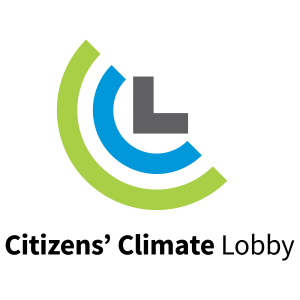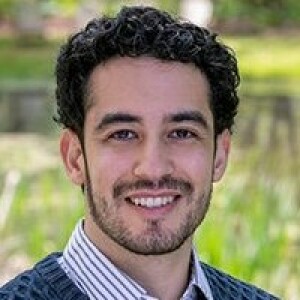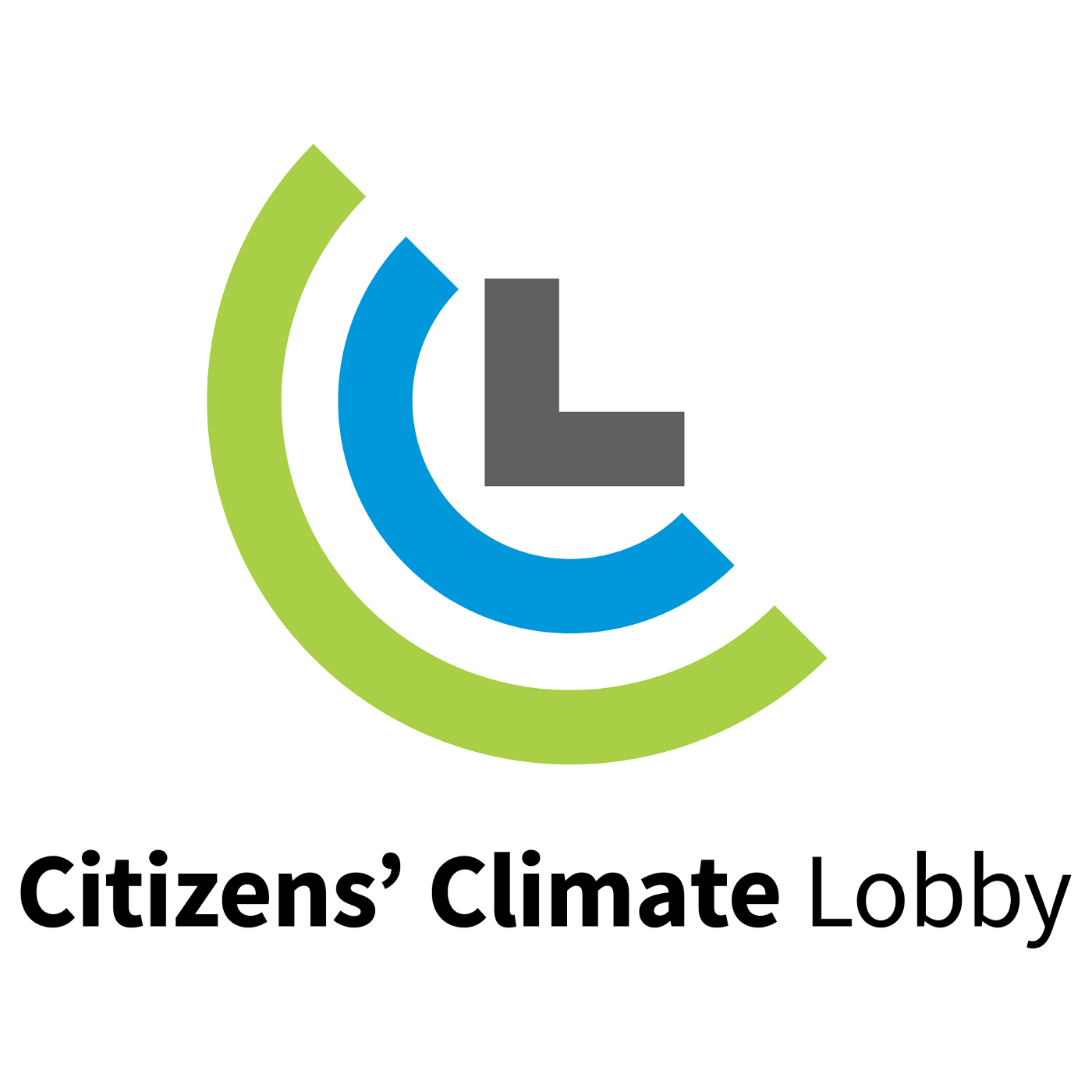Episodes

Friday May 10, 2024
CCL Training: Handling Difficult Lobbying Scenarios
Friday May 10, 2024
Friday May 10, 2024
- Introductions and Agenda (from beginning)
- Process For Overcoming Objections (4:19)
- What About China & India? (9:28)
- Concern for Low-Income Earners (13:29)
- Working Across The Aisle (18:38)
- Handling Challenging Questions Resource (22:36)
- Climate Skepticism (24:20)
- Difficult Situations (27:50)
- Final Review (33:54)
Training Page: https://community.citizensclimate.org/topics/working-with-congress/lobbying-301

Friday May 03, 2024
Lobbying Basics: Transformative Power of Constituent Advocacy
Friday May 03, 2024
Friday May 03, 2024
This training is part of the “Working With Congress” training series, designed to empower you - an important member of our volunteer network - to be ready for lobby meetings, both in-district and in D.C. Learn about citizen advocacy, the advantages we hold as citizens in transforming our government and the policies we adopt, and hear stories from CCL volunteers around the country who demonstrate how citizens can build meaningful, long-term relationships with their congressional office.
Skip ahead to the following section(s):
(0:00) Intro & Agenda
(2:20) Marshall's Story of Empowerment
(5:40) Our Opportunity
(10:50) Stories Of Empowerment
(14:06) The Constituent Advantage
(23:55) Building Relationships
CCL Training: https://community.citizensclimate.org/topics/working-with-congress/lobbying-101
Presentation Slides: http://cclusa.org/transformative-power

Wednesday May 01, 2024
Climate Science and Health AMA (Ask Me Anything) w/ Lisa Patel, MD
Wednesday May 01, 2024
Wednesday May 01, 2024
Join CCL Research Coordinator Dana Nuccitelli for our quarterly AMA series on April 30th! Dana will be joined by Dr. Lisa Patel, Executive Director of the Medical Society Consortium on Climate and Health from the Stanford School of Medicine. A mom of two young children, Dr. Patel's climate advocacy is deeply rooted in a desire to create a healthier and more equitable future. To learn about Dr. Patel’s climate and health journey before the call here!
More information: https://medsocietiesforclimatehealth.org/members-in-action/patel/
Skip ahead to the following section(s):
(0:00) Intro & Agenda
(3:00) Dr. Patel's Presentation
(20:06) Q&A Discussion

Friday Apr 26, 2024
CCL Training: New Research on a Post-IRA Carbon Price
Friday Apr 26, 2024
Friday Apr 26, 2024
Now that the Inflation Reduction Act has changed the climate policy and clean technology landscape in the United States, prior modeling about the effectiveness of policies like a carbon price has become outdated. Fortunately, a new report has been published to outline the emissions-reducing potential of several climate policies in a post-IRA world, including carbon pricing. Join CCL Research Coordinator Dana Nuccitelli for a training about this important new research.
Skip ahead to the following section(s):
(0:00) Intro & Agenda
(2:01) Pre-Inflation Reduction Act Policies
(10:45) Hamilton-Brookings Research
(24:43) Climate Leadership Council Report
(30:57) Looking Ahead
Presentation Slides: https://cclusa.org/post-IRA-carbon-price-slides

Friday Apr 26, 2024
Friday Apr 26, 2024
In this episode of Citizens Climate Radio, co-hosts Peterson Toscano and Erica Valdez explore the theme of climate change and its impact on Antarctica. They interviewed Elizabeth Rush, author of “The Quickening, Creation, and Community at the Ends of the Earth,” who shares her experiences and insights from a research expedition to Thwaites Glacier. They also spoke with Brett Cease, Vice President of Programming for Citizens' Climate Lobby, who traveled to Antarctica and shared his observations. Additionally, they discuss sustainable fashion, resilience, and the Great School Electrification Challenge.
For full show notes, photos, and transcripts, visit www.cclusa.org/radio
Journey to Thwaites Glacier with writer Elizabeth Rush
Elizabeth Rush joined a research expedition aboard an icebreaker in 2019 and headed for Thwaites Glacier for 54 days. This remote and deteriorating glacier is critical in understanding global sea level rise. Her book documents this journey, weaving together the awe-inspiring encounters with icebergs and the intense efforts of scientific labor.
A Deep Feminist Rewriting of Antarctic History
During her time on the icebreaker, Elizabeth embraced her role as writer-in-residence to shift the narrative focus. Antarctic history, often dominated by tales of conquest by wealthy, white men from the Global North, is ripe for reexamination. Elizabeth spent considerable time engaging with the ship's diverse crew members, including engineers and cooks from the Philippines, whose stories are usually overshadowed by scientists' stories. By doing so, she highlights the essential labor that makes scientific discovery possible and challenges the traditional narrative that has long defined Antarctic expeditions.
Life Aboard the Icebreaker
Elizabeth's account transcends typical adventure narratives, offering a glimpse into the daily realities of life on a research vessel. The absence of the internet and the close quarters created an environment of authenticity and camaraderie among the crew. This unique setting allowed genuine interactions and reflections that are rare in our every day, digitally-saturated lives.
A Thoughtful Dialogue on Climate Change and Parenthood
"The Quickening" provocatively explores the intersections of climate change and the decision to bring children into the world. Elizabeth tackles this complex topic not by dictating what to think but by inviting readers to engage in a thoughtful dialogue. The narrative steers clear of simplifying the issue to mere carbon footprints, instead enriching the discussion with nuanced perspectives on regeneration and balance.
About Elizabeth Rush
Elizabeth Rush is a distinguished author known for her impactful exploration of climate change and its effects on communities. Her acclaimed book, “Rising: Dispatches from the New American Shore,” was a Pulitzer Prize finalist and has garnered praise for its deeply felt portrayal of frontline communities facing environmental challenges. Rush's writing is characterized by her commitment to listening to marginalized voices, whether they are those affected by climate change, the melting glaciers of Antarctica, or individuals excluded from environmental conversations.
"Rising" has been lauded as a vital contribution to the discourse on climate change and sea levels, earning acclaim from publications like the New York Times and the Chicago Tribune. Rush's work extends beyond her book, with her writings appearing in prestigious publications such as Orion and Guernica. Rush has received numerous fellowships from institutions like the National Endowment for the Arts, National Geographic, and the Andrew Mellon Foundation. Currently based in Providence, Rhode Island, she teaches creative nonfiction at Brown University while living with her husband and two children.
This is the fourth time CCR has featured Elizabeth Rush on the show. She also appears in Episode 26 In Deep Water, Episode 29, Truth, Fact, and Cli-Fi, and Episode 47, Eco-Grief in a Time of Coronavirus Mourning.
Brett Cease's Antarctic Adventure
Brett Cease, Vice President of Programming for Citizens' Climate Lobby, shared his enlightening journey to the Antarctic Peninsula. His voyage on the Ushuaia, a research vessel turned expedition ship, offered firsthand insights into Antarctica's harsh realities and stunning beauty.
Navigating through towering waves and enduring 24-hour daylight, Brett's expedition highlighted the Southern Ocean's raw power and unpredictability. The trip provided an up-close view of the continent's dramatic landscapes and unique wildlife, including several species of penguins.
Penguins and the Impact of Climate Change
One of the most striking aspects of the journey was observing the effects of climate change on local wildlife. The Adelie penguins, in particular, suffer as rising temperatures cause the sea ice they depend on to form later and melt earlier each year.
Brett vividly described the overwhelming smell of penguin colonies, a mix of old cigarettes, ammonia, and rotten shrimp, illustrating the less glamorous side of these adorable but squalid creatures.
Ice Loss and Its Global Implications
The voyage underscored the dramatic ice loss in Antarctica, with the continent shedding approximately 150 billion tons of ice annually. Witnessing these changes was humbling and a stark reminder of the urgent need for global climate action.
Resilience Corner
Tamara Staton explores the surprising relationship between puppies and climate change. Through her experience with her puppy, Mica, Tamara highlights how pets contribute to our well-being, from reducing stress to promoting physical activity and combating loneliness. She emphasizes how the positive effects of pet ownership can indirectly support climate action by fostering healthier, happier individuals. Tamara invites us to consider pet ownership or pet-sitting as a means of experiencing these benefits.
To learn more about building resilience in the face of climate challenges, visit the Resilience Hub. Share your resiliency questions with Tamara via email at radio @ citizensclimate.org or you can text or leave a message at 619-512-9646.
CCL Youth Corner with Veda Ganesan
Veda tells us about the Great School Electrification Challenge, an initiative spearheaded by CCL National Youth Action Team that aims to transform schools into hubs of sustainability by advocating for the electrification of various systems, including HVAC, transportation, and energy sources like solar panels. Through the stories of youth teams in Cincinnati, Ohio, and Dallas, Texas, Veda showcases the grassroots efforts to engage school boards, policymakers, and the community in adopting clean energy practices. Highlighting the recent success of the Cincinnati team in getting their electrification resolution unanimously passed, she encourages listeners to join the cause and participate in the challenge.
Veda Genesan is a high school student from Texas and the host of the Sustainable Cents podcast.
Good News
Erica Valdez shares the adverse environmental effects of the fashion industry, as it uses resources and generates emissions to produce, package, and transport clothing. The good news is there are many groups taking action and bringing this issue to light.
Erica highlights the Scrounger’s Center for Reusable Art Parts (SCRAP), a nonprofit center for creative reuse in San Francisco.
Through after-school programs like Sustainable Fashion Design for Teens, SCRAP educates students about the environmental effects of the fashion industry and teaches them how to reuse and revitalize clothing materials. This program empowers young people with hands-on workshops and educational sessions. It also provides a space to learn and process climate information and connect with other young advocates. SCRAP is a perfect example of how important individual and collective action is and how creative it can look.
Monthly Question
If you could advocate for the climate through art, what kind of art piece would you create?
This can be music, dance, film, writing, or other mediums you've used in rural climate work. We want to hear about it. Please email your answer to radio @ citizens climate.org. You can also text or leave a voicemail at 619-512-9646. Tell us your story of using art in your climate work.
Listener Survey
We want to hear your feedback about this episode. After you listen, feel free to fill in this short survey. Your feedback will help us make new decisions about the show's content, guests, and style. You can fill it out anonymously and answer whichever questions you like. You can also reach us by email: radio @citizensclimatelobby.org

Friday Apr 19, 2024
CCL Training: Bringing Policy Support from Trusted Messengers to Congress
Friday Apr 19, 2024
Friday Apr 19, 2024
The CCL Government Affairs team is recommending that all chapters secure at least one letter from a trusted messenger to their member of Congress (MOC) and deliver the letter in a June lobby meeting. Folks in your chapter likely know local elected officials and these community leaders are very often trusted messengers to their MOCs. Or you can use our CCL Community training to identify and meet with CEOs and business owners who may be trusted messengers. This training provides some ideas to start the process of identifying and recruiting allies in our communities. Some of the best tools for convincing friends their voices make a difference and walks us through how to start inventorying your group and potential allies who can support CCL's efforts at the national level.
Skip ahead to the following section(s):
(0:00) Intro & Agenda
(2:30) Why Grasstops to Influence your member of Congress?
(4:00) What is a trusted messenger?
(13:28) How to identify trusted messengers
(19:17) Our editable template letter
Presentation Slides: https://cclusa.org/trusted-messengers
CCL Training: https://community.citizensclimate.org/resources/item/19/273

Saturday Apr 13, 2024
Saturday Apr 13, 2024
Join CCL for our April monthly meeting to hear more from our campaign partners Potential Energy about our focus for Earth Month on talking about climate change. For such a big challenge, we don’t talk much about climate change. All that silence means that climate change can feel less important to pay attention to than it really is. After all, if we’re not talking about it, how big can the problem be? For Earth Month, CCL volunteers are having climate conversations across the country with their friends, family, and communities. Our goal? 25,000 climate conversations that have a ripple effect, leading to more conversations in families, communities, and with elected leaders. We'll be joined by Ernesto Alcantar, who leads Potential Energy's messaging, research and strategy across several topic areas, including extreme weather, electric vehicles, and nuclear energy. Before joining the team, Ernesto was a management consultant at Boston Consulting Group, where he led strategy and transformation work across sustainability, healthcare, and commercial banking. We'll also hear from Dr. Katharine Hayhoe about her best tips for having a successful conversation about climate change, learn more about how you can participate in the campaign and log your conversations.
Skip ahead to the following section(s):
(0:00) Intro & Highlights
(7:48) Ernesto's Presentation
(30:20) Q&A Discussion
(32:51) Dr. Katharine Hayhoe's Invite
(43:00) CCL's April Actions
March Action Sheet: https://cclusa.org/actionsheet
Register for the Summer Conference (June 8-11): https://cclusa.org/summer
Pre-Call Video: https://vimeo.com/933859918
Climate Conversations Campaign: https://cclusa.org/presentations
Presentation Slides: https://cclusa.org/potential-energy-slides
Potential Energy: https://potentialenergycoalition.org/
Science Moms: https://sciencemoms.com/

Friday Apr 12, 2024
CCL Training: Managing Your Money In Your Group
Friday Apr 12, 2024
Friday Apr 12, 2024
Especially with big tabling events for Earth Day and our annual conference coming up, many chapters may be in need of support in figuring out how to manage their local funds. This training will walk through various ways to raise and manage money in your group for things like chapter activities and conference scholarships.
Skip ahead to the following section(s):
(0:00) Intro & Agenda
(1:55) General Overview Considerations
(5:20) Ideas for Conference Scholarships
(12:13) Managing Money At Group Level
CCL Training Page: https://community.citizensclimate.org/resources/item/19/139

Friday Apr 05, 2024
CCL Training: Climate Conversations Campaign For Earth Month
Friday Apr 05, 2024
Friday Apr 05, 2024
Find out more: https://cclusa.org/conversations
For such a big challenge, we don’t talk much about climate change. All that silence means that climate change can feel less important to pay attention to than it really is. After all, if we’re not talking about it, how big can the problem be? For Earth Month, CCL volunteers are having climate conversations across the country with their friends, family, and communities. Our goal? 25,000 climate conversations that have a ripple effect, leading to more conversations in families, communities, and with elected leaders. We'll hear from Dr. Katharine Hayhoe about her best tips for having a successful conversation about climate change, learn more about how you can participate in the campaign and log your conversations and highlight more resources that are available from Science Moms and Potential Energy. Join us for the launch of our big Earth Month campaign!
Skip ahead to the following section(s):
(0:00) Intro & Agenda
(2:48) Background
(9:56) How It Works
(14:01) What’s Included?
(21:31) The Guide: Heart, Head, Hands
(43:15) Putting It All Together
Presentation Slides: https://cclusa.org/climate-conversations-slides

Friday Mar 29, 2024
CCL Training: Diversity & Inclusion Updates (2024)
Friday Mar 29, 2024
Friday Mar 29, 2024

